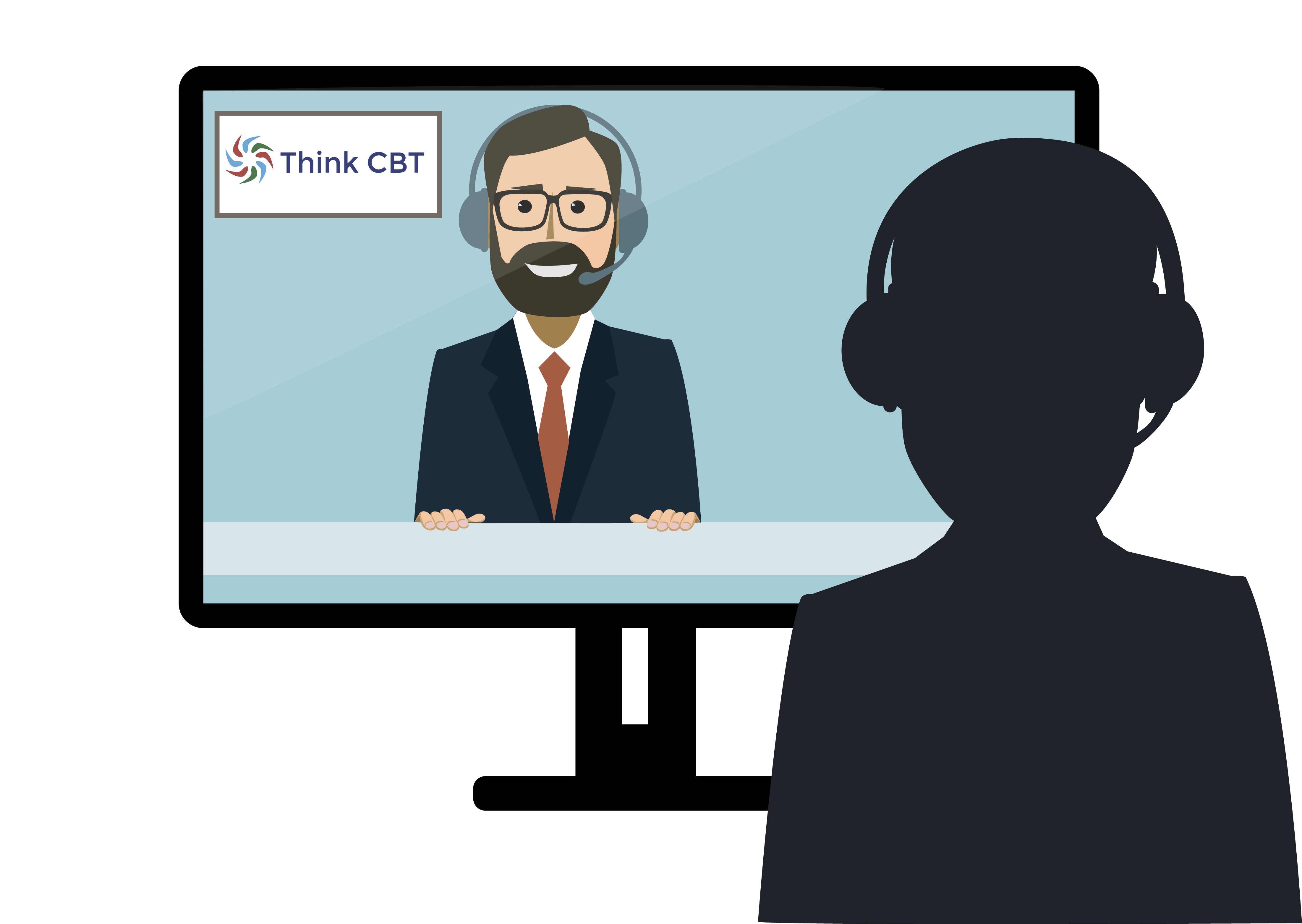Cognitive Behavioural Therapy – CBT and Counselling for Men
Men and women both experience problems with stress, anxiety and depression. However, there are some key differences in the way that men process, communicate and cope with mental health issues. Mindful of gender stereotypes, this page will outline some of these differences and provide suggestions on how Cognitive Behavioural Therapy and other evidence-based therapies can be used to support the needs of men and boys experiencing mental health problems.
If you want to talk to a specialist about men’s psychological health, you can complete our appointment request form, email info@thinkcbt.com or call +44 1732 808 626. Your enquiry will be managed on a confidential basis and your contact details will never be shared with other parties.
Why it’s Sometimes Different for Men
Attitudes to good mental health and wellbeing have changed over time and the old stigma attached to stress, anxiety and depression has gradually reduced as we find it easier to talk openly about mental health problems at home and at work.
The general focus has shifted from seeing men’s mental health problems as a weakness or flaw, to working on personal resilience and improving coping skills and behaviours.
In spite of this, there are still social and cultural expectations mainly placed on men by men, to never show vulnerability and to remain self-sufficient whatever the problem.
Whilst gender stereotypes are often unhelpful, it’s also important to recognise that men and boys often react and cope differently to women when handling mental health issues.
Whilst women are around twice as likely to experience a mental health problem, approximately one in eight men in the UK still have a psychological health problem such as depression, social anxiety disorder, PTSD or substance abuse. Whilst the prevalence of mental health conditions is higher for women, men are less likely to talk about or report psychological problems. This contributes to under-reporting and frequent undiagnosed problems.
Men tend to cope by acting out, often engaging in self-sabotaging behaviour and blaming other factors. Men are also three times more likely to rely on alcohol or substances and take their own life.
This points to clear differences in the way that men cope with concerns about stress, anxiety and depressed mood.
Differences in Male Coping Mechanisms
The felt symptoms of anxiety and depression are obviously very similar for men and women, (there isn’t a male versus female form of depression or anxiety). However, it’s clear that men and women often cope in different ways.
Women are statistically more likely to internalise and ruminate over problems, whereas men will typically externalise the problem and act out in counterproductive ways.
Not all men follow these patterns; however, some of the following factors can apply:
- Becoming easily irritable, restless or short-tempered.
- Reacting defensively, getting angry or showing aggression.
- Becoming distracted or fixating on other issues.
- Drinking more alcohol or using other substances.
- Engaging in high risk activities.
- Shifting the blame or projecting problems onto other people.
- Showing contempt or becoming critical about less important issues.
- Changes in appetite and weight.
- Failing to recognise, ignoring or denying the problem.
Whilst the reasons for these differences are complex, it’s recognised that cultural expectations and social norms place significant pressure on boys and men to be strong and brave without showing emotions or talking about feelings. These patterns are gradually changing as each generation becomes more informed and emotionally intelligent; however, the gender expectations on coping for men and women remain different.
Men are less likely to talk openly and share their feelings than women. Men typically use verbal communication on an instrumental basis for problem solving or task completion. Women are generally better at using communication on a relational basis to create a sense of safety, closeness or security.
Men and boys are less likely to seek help, which leads to undiagnosed problems and feelings of isolation, loneliness, shame and embarrassment.
Online Video Based Therapy for Men

Did you know that video-based CBT and counselling performs just as well as face-to-face therapy? Research demonstrates that the approach is the same and the therapy outcomes are equally effective. Online therapy offers improved flexibility, reduced costs and increased choice. All you need is a confidential space, a device or computer and a reliable Internet connection.
Book an Initial Appointment
Therapy Options for Men and Boys
Whilst we never make assumptions about our clients based on gender differences alone, we recognise that men sometimes require a different approach to therapy than women. In our practical experience as psychologists and psychotherapists, the structure, nature of the conversation and strategy can be different when working with men.
Whilst Cognitive Behavioural Therapy has been found to be highly effective across gender and cultural differences, the structure, focus on problem solving and goal-oriented approach in CBT frequently provides a good foundation for building constructive and trusted therapy outcomes with our male clients.
Cognitive Behavioural Therapy provides:
- A focus on problem solving and goals.
- Understanding psychological cause and effect in the maintenance of the problem.
- Teaching cognitive change and unhooking techniques.
- Practical strategies for changing negative or self-sabotaging behaviours.
- Experimenting with new approaches to increase motivation and develop feelings of fulfilment.
CBT helps the client to learn and practise new “martial arts of the mind”, to improve personal resilience and improve coping skills. Other approaches including structured counselling, EMDR and coaching can also be helpful.
Our male-oriented approach to therapy involves building non-judgemental relationships, identifying the cause of the problem, learning skills and strategies to change behaviour and improve a sense of personal reward.
It’s crucial that young boys and men of all ages are provided with access to competent therapy that recognises gender-specific needs and focuses on developing good coping skills in a structured and goal-focused way.
For Women Worrying About Men
If your son, brother, partner, friend or colleague is suffering in silence or not coping with a psychological health problem, it often takes the support of a trusted woman to break the male mental health cycle.
Good strategies for encouraging change always start by being present, listening without judgement, discussing options and supporting men to take the first step towards change and improvement. Focus less on the problem and more on the possible solution.
Whilst we always work on a confidential basis with our clients, we will always talk to a trusted family member, partner or friend when setting up the initial contact.
Free Mental Health Resources for Men
We have made a range of mental health resources freely available for men and boys experiencing problems with stress, anxiety and depression.
Cognitive Distortions Exercise
Learn how to identify common thinking traps with our cognitive distortions exercise.
Download Here
Theory A-B Exercise
Practise identifying and testing your worries and negative thoughts by using the Theory A–B exercise.
The CBT Thought Record
Use this exercise to catch, check and change negative or unhelpful thinking patterns.
Cognitive Disputation "Putting your Thoughts on Trial"
Push back and test the evidence for/against negative assumptions and worries by putting your thoughts on trial.
Whilst we have identified a number of general differences for men's mental health, we recognise that every individual has specific or unique needs regardless of gender, race, culture or sexuality. We will always treat our clients as individuals. You can organise a confidential referral by completing the appointment request form on this page, emailing info@thinkcbt.com or calling +44 1732 808 626.







